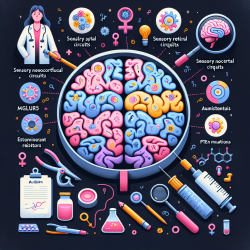Introduction: The Intersection of Ethics and Economics in Speech Therapy
As a speech-language pathologist, you are dedicated to improving the lives of children through effective therapy. However, in a world of limited resources, making decisions about how to allocate those resources can be challenging. This is where the principles of utilitarianism and cost-effectiveness analysis (CEA) come into play. By understanding these concepts, you can make informed decisions that maximize the benefits for your clients.
Understanding Utilitarianism and Cost-Effectiveness Analysis
Utilitarianism is an ethical framework that suggests actions should be judged based on the outcomes they produce, specifically aiming to generate the greatest good for the greatest number. In the context of global health and speech therapy, this means allocating resources in a way that maximizes overall health benefits, such as improved communication skills or increased quality of life.
Cost-effectiveness analysis is a tool used to evaluate the efficiency of different interventions. It involves comparing the costs and outcomes of various options to determine which provides the most significant benefit for the least cost. This approach is particularly relevant in settings with limited budgets, such as schools or public health programs.
Applying Utilitarianism in Speech Therapy
For speech-language pathologists, applying utilitarian principles means considering the broader impact of your therapy choices. Here are some ways to incorporate these ideas into your practice:
- Prioritize Interventions: Focus on therapies that offer the most significant improvement in communication skills for the largest number of children. This might involve choosing evidence-based practices that have been proven effective in similar populations.
- Resource Allocation: When resources are limited, such as time or funding, prioritize interventions that provide the most substantial benefit relative to their cost. This might mean opting for group therapy sessions that can reach more children rather than one-on-one sessions.
- Data-Driven Decisions: Use data and research to guide your therapy choices. By relying on evidence-based practices, you can ensure that your interventions are both effective and efficient.
Challenges and Considerations
While utilitarianism and cost-effectiveness analysis offer valuable frameworks for decision-making, they are not without challenges. Critics argue that these approaches can sometimes conflict with other ethical values, such as equity or urgent need. For example, focusing solely on efficiency might overlook the needs of particularly vulnerable populations.
As a practitioner, it's essential to balance these considerations. While efficiency is crucial, it's also important to ensure that all children have access to the care they need. This might involve advocating for additional resources or finding creative solutions to meet the needs of all your clients.
Conclusion: Embracing a Balanced Approach
Incorporating utilitarian principles and cost-effectiveness analysis into your practice can help you make informed, data-driven decisions that maximize the benefits for your clients. By prioritizing interventions that offer the greatest good for the greatest number, you can ensure that your therapy is both effective and efficient.
To delve deeper into the ethical foundations of cost-effectiveness analysis and its implications for global health, I encourage you to read the original research paper: Utilitarianism and the ethical foundations of cost-effectiveness analysis in resource allocation for global health.










